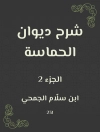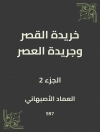In ‘Songs of Experience, ‘ William Blake presents a profound exploration of the duality of human existence, contrasting innocence with the harsh realities of experience. Through a series of emotive poems complemented by his signature illustrations, Blake employs a vivid and often symbolic literary style that blends Romanticism with the prophetic vision of a mystic. This collection serves as a sequel to his earlier work, ‘Songs of Innocence, ‘ inviting readers to reflect on the loss of purity and the complexities of the human condition amid the backdrop of an industrializing society. The poems are imbued with philosophical musings and religious undertones, demonstrating Blake’s mastery in intertwining personal and universal themes while adhering to an innovative use of meter and rhyme. William Blake (1757-1827) was not just a poet but also a painter and engraver, characteristics that deeply influenced his writing process. A nonconformist thinker, Blake’s radical views on religion and society shaped his literary vision. His experiences in a rapidly changing England—from the rise of industrialization to the stark social inequalities—formed the foundation of ‘Songs of Experience, ‘ where he critiques societal norms and the moral decay he perceived around him. Readers interested in delving into the complexities of existence and the human psyche will find ‘Songs of Experience’ a powerful and thought-provoking work. It is a vital addition to any literary collection, offering insights that resonate with modern readers and urging them to confront the often-uncomfortable truths of our world.
लेखक के बारे में
William Blake (1757-1827) remains an enigmatic figure in the pantheon of English literature, whose visionary artistry encompasses poetry, visual art, and printmaking. Often regarded as a precursor to the Romantic Movement, Blake’s work encapsulates profound spiritual and metaphysical themes. His literary oeuvre is characterized by its rebel spirit and opposition to the dogma and institutional rigidity of his time. Best known for his two interconnected collections ‘Songs of Innocence’ and ‘Songs of Experience’, Blake lays out a dialectic that explores the dichotomy between the untainted world of childhood (‘Innocence’) and the more corrupt and oppressive dimensions of adulthood (‘Experience’). ‘Songs of Experience’ (1794), expands upon its precursor, delving deeper into subjects of social injustice, existential suffering, and the loss of idyllic virtues. His use of simple stanzas and lyrical ballads belies the depth of his symbology and the complexity of his prophetic visions. Blake’s works have been extensively analyzed for their radical social commentary and their exploration of good and evil, innocence and corruption, and the interplay of freedom and repression. His influence is seen not just in literature but in shaping broader cultural and philosophical realms. Despite facing widespread indifference and even dismissal during his lifetime, Blake’s genius has been ceaselessly reevaluated, positioning him as a seminal figure in Western literary history.












